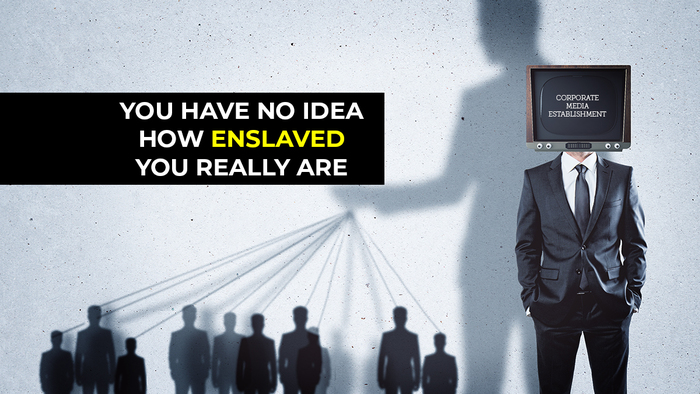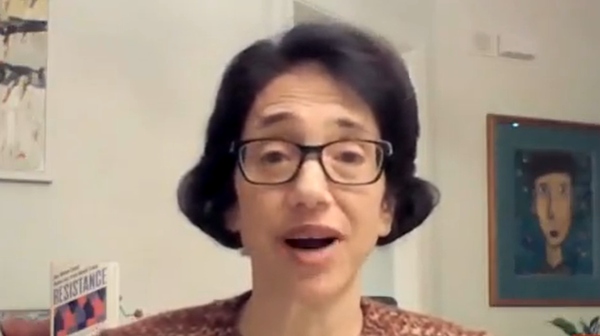French health officials urge no talking on public transportation to limit virus spread
02/01/2021 / By Divina Ramirez

France’s National Academy of Medicine is advising people to avoid talking and taking phone calls when riding packed trains and buses to help stop the spread of the coronavirus.
In a statement released on Friday, Jan. 22, the Academy said that the mandatory wearing of face masks where social distancing is not possible, such as on public transport, should be accompanied by the simple precaution of keeping quiet.
Academy member Patrick Berche clarified that there would be no problem if there are only two or three people riding a subway car, but it would make sense not to talk if the car is crowded.
That said, he clarified that the precaution was only a recommendation and not an obligation since the Academy is not an official advisory body.
Talking in poorly ventilated places may spread droplets
According to a recent study by researchers from the University of Cambridge and Imperial College London in England, having a conversation in a poorly ventilated area can spread respiratory droplets farther than a short cough can. This can lead to an outbreak if at least one of the persons talking is a carrier of the coronavirus.
The Wuhan coronavirus (SARS-CoV-2) is primarily spread by an infected person through respiratory droplets and aerosols created when coughing, sneezing, talking or even just breathing. Large droplets usually fall to the ground within seconds. However, small droplets called aerosols can linger in the air for long periods and latch onto surfaces.
Talking generates aerosols, which can spread and accumulate faster in spaces with poor ventilation, such as in a crowded train or bus. This is why increasing ventilation is crucial for dispersing aerosols.
In addition, the study also suggests that it only takes a few seconds for viral particles at levels above the amount needed to infect a person to travel a distance of six and a half feet.
Spain introduces “silent trains” against COVID
Similar recommendations against talking on public transit have been introduced in several parts of Spain. For instance, Barcelona was the first to introduce the “silence transport” measure. The idea is that commuters should remain quiet and refrain from eating or drinking on public transit to avoid generating aerosols.
In the region of Catalonia, of which Barcelona is the capital, train carriages even have green signs plastered on windows reminding commuters to refrain from eating or talking, even when wearing face masks.
Meanwhile, Transports Metropolitans de Barcelona (TMB), the main public transit operator in Barcelona, has recently launched a campaign simply called, “Avoid talking.” As part of the campaign, TMB is urging commuters to keep quiet via messages on the public address system or on bus screens and posters.
And although the campaign and similar initiatives are only recommendations, authorities said commuters are generally accepting of the recent measures.
Catalonia’s Secretary of Infrastructure and Mobility Isidre Gavin i Valls explained that as people try to protect themselves amid the pandemic, they have accepted the measures as another means of prevention.
The “silence transport” initiative also has other advantages outside of curbing transmission. For example, commuters can enjoy a quieter journey without noise or distractions. Some even get to read and study on trains. As a result, commuters themselves are disapproving of others who do talk, eat or drink.
One woman who approves of the initiative said it has always bothered her whenever people would pull down their face masks to talk on the phone or with other people. The initiative would help put an end to that.
The regions of La Rioja and the Balearic Islands have adopted the “silence transport” measure as well. (Related: Spain to maintain a list of people who refuse coronavirus vaccinations.)
Follow Pandemic.news for more articles with updates on the coronavirus pandemic.
Sources include:
Tagged Under: coronavirus, covid-19, freedom, health freedom, infections, information control, Liberty, outbreak, pandemic, public transportation, societal collapse, Tyranny
RECENT NEWS & ARTICLES
COPYRIGHT © 2018 SPEECHPOLICE.NEWS
All content posted on this site is protected under Free Speech. SpeechPolice.news is not responsible for content written by contributing authors. The information on this site is provided for educational and entertainment purposes only. It is not intended as a substitute for professional advice of any kind. SpeechPolice.news assumes no responsibility for the use or misuse of this material. All trademarks, registered trademarks and service marks mentioned on this site are the property of their respective owners.




















